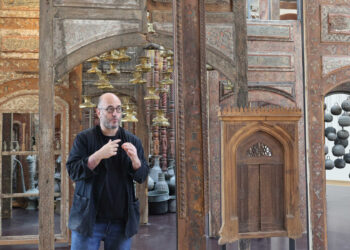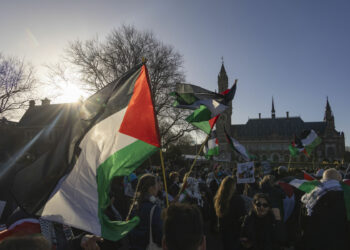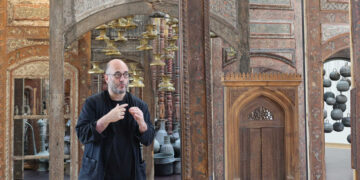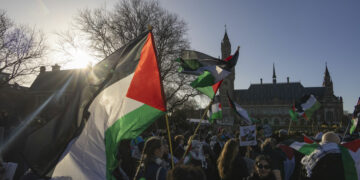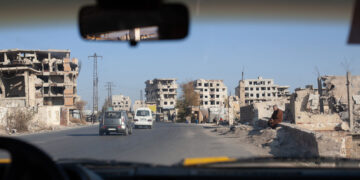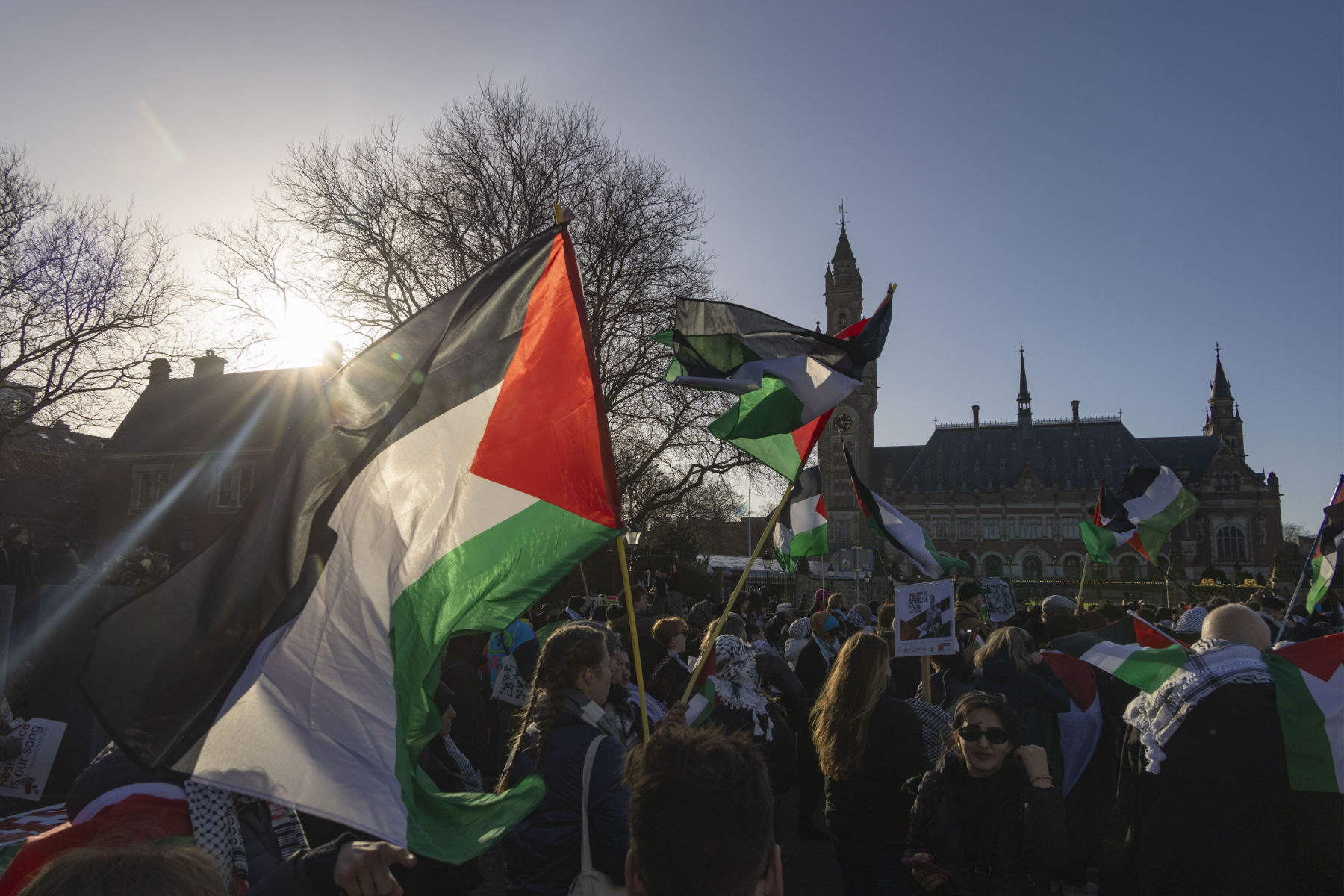Ali Mushaima is a Bahraini activist and former political prisoner based in London. In 2012, Bahrain’s government revoked his citizenship and sentenced him in absentia to 45 years in prison.
"The news that comes in about the conditions of the beloved leaders and prisoners wounds my heart, and I feel pain for them. If it were not for my health circumstances, I wouldn't hesitate for a moment to join them. I ask Almighty God to strengthen them, keep their hearts steadfast, protect them from all harm, and relieve them."
My imprisoned, 75-year-old father, Hassan Mushaima, told me this over the phone before the guards at Bahrain's Jau Prison cut off his call on Aug. 19.
More than 800 prisoners in Jau are currently staging the largest hunger strike in Bahrain's history. Bahrain's notorious central jail houses over 2,600 convicted male prisoners, almost half of them political prisoners, including my father and other opposition activists and human rights defenders, who have been imprisoned since 2011 following the violent crackdown on the mass protest movement calling for democratic reform.
The hunger strike, which started on Aug. 7 with about 400 political prisoners, is now nearing its fourth week, and has fueled rare street protests, despite Bahrain being a police state. The prisoners in Jau are demanding an end to solitary confinement for many who have been in isolation for over a year; more than one hour each day outside their cell (prisoners are currently confined to 23 hours in their cells); access to necessary medical care, as prisoners suffer from what they call the "slow death" of being routinely denied medical treatment; family visitations where prisoners can meet their loved ones without being separated by a glass barrier; and the ability to pray together in the prison prayer rooms.
Bahrain's regime continues to ignore the pleas of prisoners and their families because it has never been held accountable for its abuses.
- Ali Mushaima
This last demand is a grim reminder of the cruelty and intolerance of the ruling Al Khalifa regime, which demolished numerous Shia mosques as retaliation against the popular uprising in 2011, which sought to end the government's systematic discrimination of Bahrain's majority Shia population. Some of those mosques had historical significance predating the Khalifa family's rule in Bahrain, such as the 400-year-old mosque of Amir Mohammed al-Barbaghi. This is the same regime that, today, claims to champion tolerance and coexistence through propaganda like the King Hamad Global Centre for Peaceful Coexistence.
The mass hunger strike by prisoners reveals several stark truths about Bahrain, starting with how far the regime is willing to go to degrade and humiliate its political opponents, depriving them of their most basic rights. The strike symbolizes the ongoing and deeply entrenched political crisis between the people of Bahrain and the despotic Al Khalifa regime, more than 12 years after the popular uprising. Those who demand justice and democracy remain imprisoned and tormented, their only recourse to go on a hunger strike.
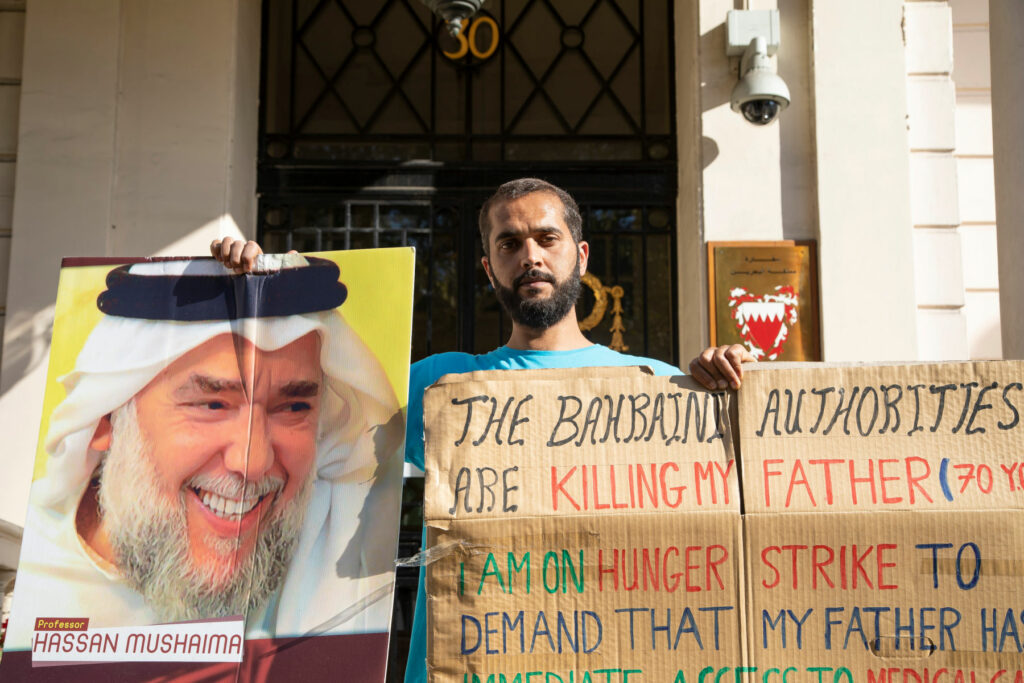
Their hunger strike also exposes the extent of Western hypocrisy and disregard for human rights and democratic principles. The United Kingdom, which has stayed silent about the hunger strike, trains and funds the Bahraini security services, institutions and officials responsible for these abuses, turning a blind eye to them. The British government even recently removed Bahrain from its list of priority human rights countries following Bahrain's pledge to invest £1.3 billion into the U.K. economy.
The United States' position is similar in its hypocrisy. The State Department has only issued a meek statement that it was "aware of and concerned" about the prisoners' hunger strike. But just last month, when the State Department claimed that Secretary of State Antony Blinken raised concerns about prisoners in a meeting with Bahrain's foreign minister, Blinken also showered him with public praise. Bahrain hosts the U.S. Navy's Fifth Fleet and is one of America's designated "major non-NATO allies."
There is a momentum to this hunger strike, and it is no longer contained behind prison walls. Fear has lifted on the streets.
- Ali Mushaima
Even if the authorities meet their demands, the hunger strikers will remain behind bars as political prisoners in a kingdom of fear and repression. My own experience with the Bahraini authorities goes back to 1998, when I was arrested and then tortured during peaceful mass protests demanding constitutional change that spanned much of the 1990s. I was only 15. I participated in my first hunger strike in detention in 1998, and my second hunger strike the next year at Dry Dock Prison in al-Hidd. Hundreds of political prisoners were detained then for months, if not years, without a charge or trial.
A hunger strike is the last measure prisoners take when a change in their situation appears impossible. No one takes a hunger strike lightly. The first day is the hungry feeling, the drop in energy. After the first few days, it is a mental game, and the fear that the suffering will only end with death.
In 2018, my father was deprived of medical care, including crucial medication, unless he submitted to shackles. My father preferred death over the insult to his own dignity. The regime was killing my father slowly, and I had to do something. I resorted to a hunger strike outside the Bahraini embassy in London, demanding that my father be given access to his doctors, as well as family visits and books. My hunger strike lasted for 46 days. I slept on the pavement outside the embassy in protest for 63 days in all.
Because of the attention my hunger strike generated, in London and internationally, the Bahraini authorities were eventually compelled to grant my father access to medical care without being shackled, and to allow family visits to him without a glass barrier. Yet even though I achieved something then, his suffering in prison, like so many other political prisoners, didn't end. It will never end until all of Bahrain's political prisoners are freed. Five years after my hunger strike, the inmates in Jau Prison have to risk their lives in their own hunger strike over some of the very same demands.
Bahrain's regime continues to ignore the pleas of prisoners and their families because it has never been held accountable for its abuses. Despite the media spotlight from the prisoners' hunger strike, King Hamad trusts that his Western backers will only issue the mildest public criticism, if they even say anything at all.
But there is a momentum to this hunger strike, and it is no longer contained behind prison walls. Fear has lifted on the streets, where the families of political prisoners are leading renewed protests. The authorities in Bahrain should not underestimate the consequences if they refuse the hunger strikers' demands.
Editor's note: The original headline of this article incorrectly described Hassan Mushaima as one of the hundreds of prisoners on hunger strike in Bahrain.


















